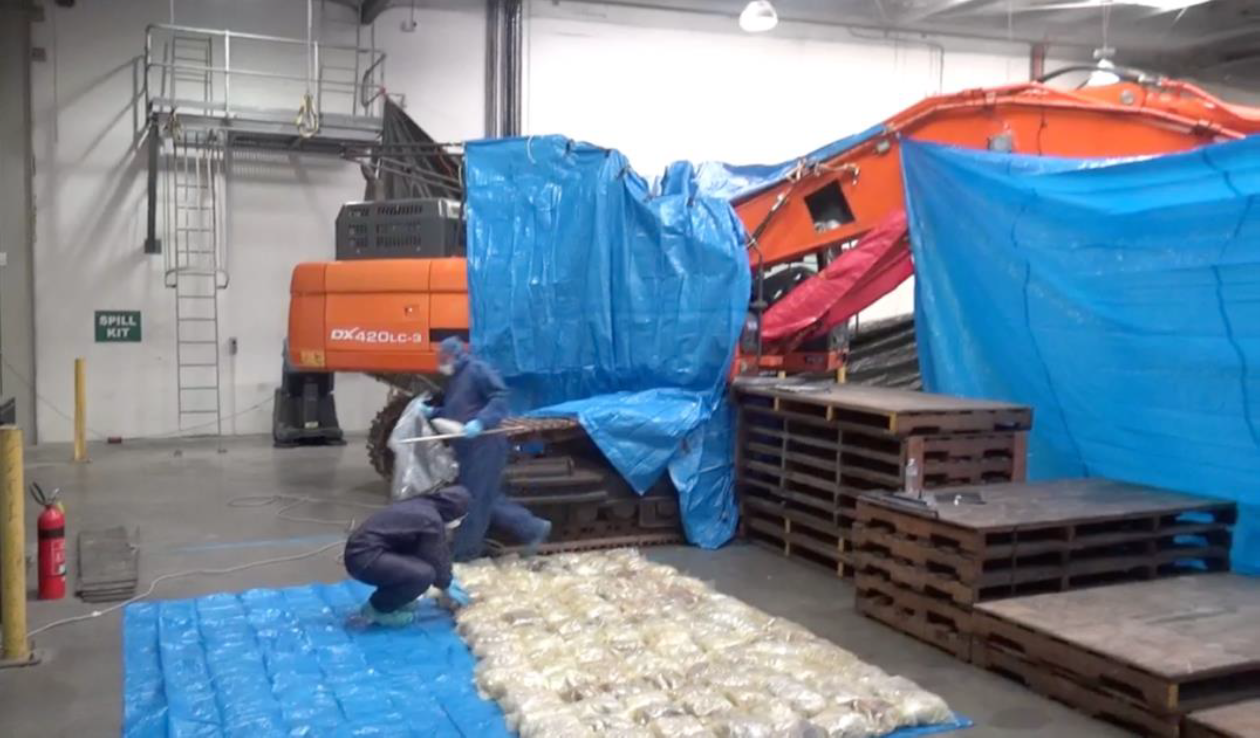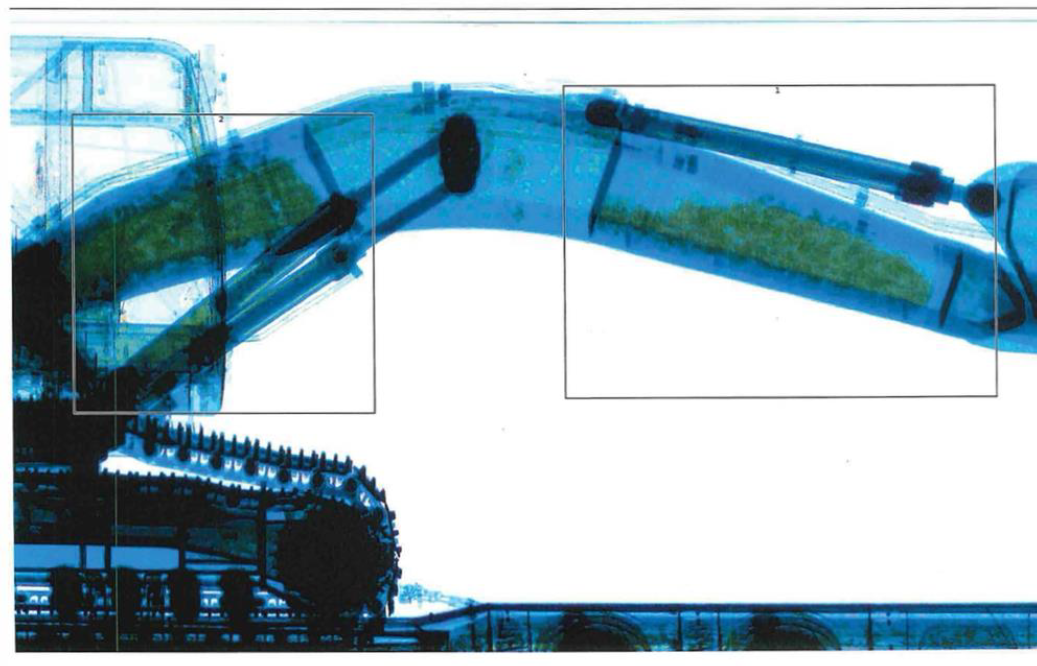Six men jailed after £44 million worth of MDMA found hidden in arm of excavator
Six men behind one of the biggest MDMA smuggling operations ever dealt with by the CPS have today been jailed to a combined total of 140 years.

Defendants Danny Brown, 55, Stefan Baldauf, 62, Tony Borg, 45, Peter Murray, 59, Philip Lawson, 61, and Leon Reilly, 50, were sentenced at Kingston-upon-Thames Crown Court on 6 December 2022 for their involvement in a conspiracy to smuggle almost half a tonne of MDMA – also known as ecstasy - into Australia in the arm of an excavator machine.
Between June 2019 and June 2020, Brown and Baldauf, oversaw the operation to export the massive quantity of the Class A controlled drugs concealed in the lead-lined arm of an excavator. The drugs had an estimated street value of £44 million if sold in Australia and posed a considerable risk to the health and well-being of the Australian public.

The UK-based conspirators arranged the shipment and the sale at auction of the excavator to the ultimate purchasers of the drugs in Australia. The gang used encrypted Encrochat mobile phones in order to further their crime.
Borg accepted delivery of the excavator into a warehouse in Grays, Essex. Murray then delivered the drugs to the same warehouse, where Lawson later cut open the excavator arm and concealed 210 bags of MDMA inside. After sealing the excavator arm, the machine was moved to Southampton Docks, then shipped to Australia.
Unbeknown to the group, Australian custom authorities had discovered the drugs, removed them from the excavator and sent the machine on empty.
Reilly exchanged numerous encrypted Encrochat messages with Brown and Baldauf to update them on the machine’s progress and passage through Australia. Lawson then provided a detailed diagram showing where the MDMA was hidden and what tools would be needed to access the drugs.
Struggling to find the MDMA, the men in Australia responded with a picture of a hollow arm and told Brown the machine was empty. Brown and his accomplices provided even more detailed explanations of where the drugs were concealed, but soon realised they had been stolen.
Specialist Prosecutor for the CPS, Colette Moore, said: “This case involved a colossal quantity of MDMA, with an estimated street value of £44m, which posed a huge risk to the health and well-being of the Australian public. Organised criminals manufacture ecstasy and other synthetic drugs in dangerous illicit factories, so each individual tablet potentially poses a risk to life of those using it.
“Excellent work from the Australian authorities identified the drug concealment in the mechanical arm of an excavator arm and prevented its onward distribution. Collaborative international working with our Australian partners has resulted in the successful prosecution of the men who had exported these drugs to the Antipodes.”
The prosecution used the messages exchanged to demonstrate how many defendants were aware MDMA had been concealed in the excavator.

Demonstrating the use of the EncroChat phones was crucial to proving the case against Brown and Baldauf. The prosecution were able to link Brown to his Encrochat phone through a picture of his French Bulldog, ‘Bob’, which he sent to one of the other gang members. The dog had the same number on his collar that he had been sending messages on.
Baldauf sent a photo of his location which accidentally captured his own reflection on his way to meet Brown which was used to prove he had control of the device.
In June 2020, Brown and Baldauf were arrested by National Crime Agency (NCA) officers, and further investigation led to the remaining defendants’ arrests in the following months.
Ms Moore added: “The use of encrypted EncroChat phones failed to prevent the organised criminals being identified and prosecuted. In fact, the messages established, beyond doubt, that these men were responsible for the drug export to Australia. The more they used them, the deeper the incriminating hole they dug for themselves.”
Notes to editors
- Colette Moore is a Specialist Prosecutor for CPS Serious Economic Organised and International Directorate (SEOCID)
- SEOCID was launched on 1 April 2022 and is the CPS response to the changing nature of crime by bringing together specialists in organised and economic crime, as well as specialists in Proceeds of Crime, extradition and international co-operation
- Today (6 December 2022) at Kingston-upon-Thames Crown Court, the defendants below have been sentenced for conspiracy to evade the prohibition on the exportation of a controlled drug of Class A in contravention of section 170 of the Customs and Excise Management Act 1979 contrary to section 1 (1) of the Criminal Law Act 1977:
- Stefan Baldauf (DOB: 24/01/60) was sentenced to 28 years' imprisonment
- Danny Brown (DOB: 09/05/67) was sentenced to 26 years' imprisonment
- Philip Lawson (DOB: 02/07/61) was sentenced to 23 years' imprisonment
- Tony Borg (DOB: 13/05/77) was sentenced to 15 years' imprisonment
- Peter Murray (DOB: 12/07/63) was sentenced to 24 years' imprisonment
- Leon Reilly (DOB: 26/03/72) was sentenced to 24 years' imprisonment